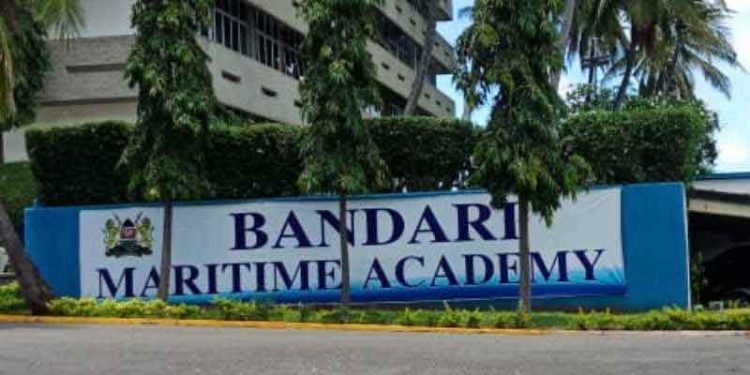Students undertaking maritime education and training at the Bandari Maritime Academy will soon benefit from on board and offshore training in one of the world’s leading container shipping and logistics groups.
This will be the culmination of a Memorandum of understanding that is due for signing tomorrow between CMA CGM Kenya Ltd and the Government of Kenya through the Ministry of Transport, Infrastructure, Housing Urban Development and Public Works through the State Department for Shipping and Maritime.
The MOU creates a framework to facilitate support for the training and enhancement of skill and competencies in Kenya’s maritime sector. Through the agreement, opportunities will be developed to provide sea time opportunities to cadets as well as shore- based shipping and port operations skill development.
As a start to this collaboration, the French container and shipping company is providing seaboard training to a minimum of 4 cadets and 4 Laureates from Bandari Maritime Academy in maritime transport and logistics in July 2021.
Speaking ahead of the official signing and commissioning ceremony today, the Principal Secretary, State Department for Shipping and Maritime, Mrs. Nancy Karigithu expressed appreciation for the opportunity noting it will benefit Kenyan youth in attaining the mandatory sea time and ensure sustainable development of the skills necessary for development of our blue economy.
“Bandari Maritime Academy will be the lead agency in implementing the MOU as the institution responsible for the development of Kenya’s maritime sector human resource capacity building. The MOU also creates a framework to forge linkages with industry players and enhance advancement of maritime training among maritime students from both countries. We look forward to cementing a strong partnership aimed at providing continuous and structured services towards this endeavour”.
CMA CMG Managing Director termed the impending signing between the two parties as “historic cooperation that will enable us to support the further development of Kenya’s shipping and maritime sector and take advantage of the expertise of our global shipping line for further blue growth in Kenya.
The company is a leading worldwide container transportation and shipping group, using 257 shipping routes between 420 ports in 160 different countries.
BMA has so far developed 12 curricula on employable skills for the maritime sector out of a target of 33 courses it plans to offer. Since the academy was granted autonomy from the Kenya Ports Authority (KPA) in 2019, it has trained over 398 students in the modular courses and over 2000 participants in the short courses.
The government, through Legal Notice No. 233 of 28th November 2018, transformed Bandari College into Bandari Maritime Academy, a Regional Maritime Centre of Excellence for skills development for the Blue Economy- the next frontier for the economic development of our country.
Francis Muraya, the acting director of BMA, in a presentation made recently said that the institute has the potential to create 52,000 jobs in the maritime sector in the next 10 years.
The academy has developed a driving school for cargo handling and efficient port operations. Other critical projects that are currently underway include the establishment of ICT infrastructure for learning and establishment of a ship in campus.
The academy has already established a five-year strategic plan with a BMA Bill and development of a master plan already underway.
Development of the curriculum for the other courses is also underway, together with the acquisition of the training equipment with the help of the Kenya Maritime Authority (KMA)
The academy is working with the other training institutions that include colleges, universities, and shipping lines to enhance skills in the sector. Last year, KMA inked a deal with Higher Education Loans Board (HELB) for assisting students enrolling for maritime based courses.
The industry is currently struggling with a shortage of personnel because of the prohibitive costs of training abroad, which has made many students shun careers in the industry. One of the major challenges facing the maritime sector is lack of training personnel with MBA largely relying on part-time tutors.
Selection of students for BMA will also be done by Universities and Colleges Placement Service. The facility has an annual capacity of admitting about 2,000 students.





